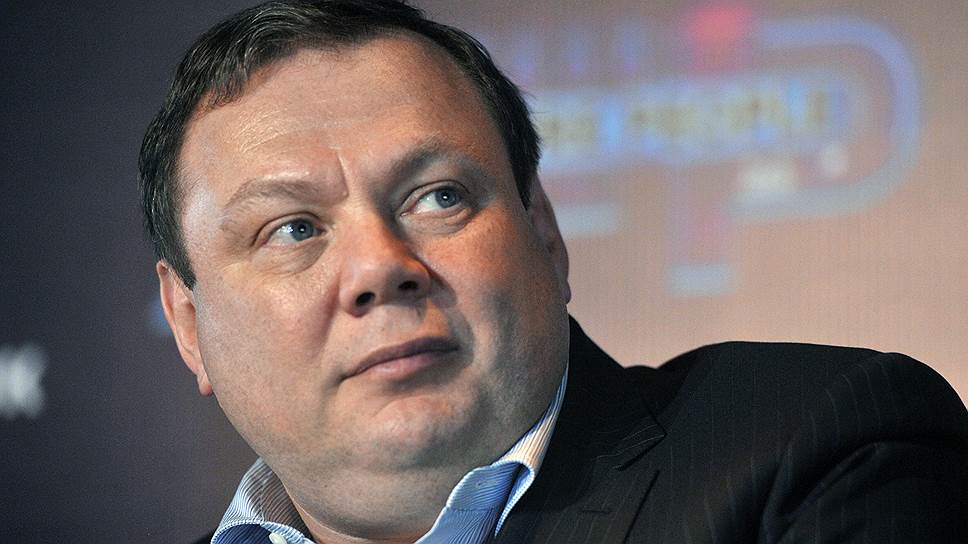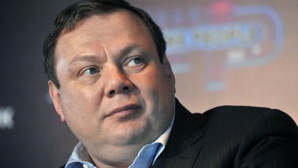According to them, the term of the decision will depend on the outcome of the elections. The Prime Minister David Cameron’s Cabinet, including Energy Minister Ed Davey, did not discuss the deal this week, informed sources said.
In early March, Fridman’s investment firm LetterOne completed the acquisition of the German RWE DEA oil and gas division for 5.1 billion euros. DEA, in particular, owns several fields in the North Sea, which account for 3 to 5% of the produced gas Britain.
London fears that if the West will introduce new sanctions against Russia, production from these fields will be stopped, and therefore requires their resale.
LetterOne initially planned to go to court to defend the fields possession right, but then hired consultants to consider options for sale or exchange.
On Thursday, the British Parliament had the last session before the elections and will be officially dissolved on Monday. Ministers will be still able to make decisions, but not any important statements due to custom.
- This government is not going to take the final decision. It will take weeks, if not months, until a new cabinet will return to this subject, - said a source familiar with the discussions in the government.
According to another source, MPs told the government that they want to hold a hearing in the case of approval of the transaction.
- For now, no one will take the risk of making a final decision, - said the second source.
Ministry of Energy and LetterOne declined to comment.
Meanwhile, Mikhail Fridman and German Khan, have been eager to enter the global oil and gas market for quite a long time. In 2003, they approached the target, when, together with Viktor Vekselberg and Len Blavatnik, attracted British majors BP and created TNK-BP. However, it turned out that the international partner is not a guarantee of international expansion. In 2007, Lord John Browne, leading BP for 12 years, resigned. A year later, the CEO of TNK-BP Robert Dudley admitted that between BP and AAR ("Alfa Group», Access Industries, "Renova"), there is disagreement on the future strategy of the oil company:
- From my point of view, the company should focus on the exploration, development and oil refining primarily in Russia. Investing in international projects must be approached very, very selectively. Sadly, not all the shareholders feel the same way.
AAR eventually forced the resignation of Dudley, accusing him that he is acting in the interests of one shareholder. Two years after Dudley’s TNK-BP leaving, he became the leader of the whole British company but two years later BP and AAR quarreled again: Russian shareholders did not like the desire BP and Rosneft’s desire to develop the shelf. The conflict occurred to be more serious than previous, and in March 2013 the two partners sold their stake in TNK-BP to Rosneft.
source: Investing.com
In early March, Fridman’s investment firm LetterOne completed the acquisition of the German RWE DEA oil and gas division for 5.1 billion euros. DEA, in particular, owns several fields in the North Sea, which account for 3 to 5% of the produced gas Britain.
London fears that if the West will introduce new sanctions against Russia, production from these fields will be stopped, and therefore requires their resale.
LetterOne initially planned to go to court to defend the fields possession right, but then hired consultants to consider options for sale or exchange.
On Thursday, the British Parliament had the last session before the elections and will be officially dissolved on Monday. Ministers will be still able to make decisions, but not any important statements due to custom.
- This government is not going to take the final decision. It will take weeks, if not months, until a new cabinet will return to this subject, - said a source familiar with the discussions in the government.
According to another source, MPs told the government that they want to hold a hearing in the case of approval of the transaction.
- For now, no one will take the risk of making a final decision, - said the second source.
Ministry of Energy and LetterOne declined to comment.
Meanwhile, Mikhail Fridman and German Khan, have been eager to enter the global oil and gas market for quite a long time. In 2003, they approached the target, when, together with Viktor Vekselberg and Len Blavatnik, attracted British majors BP and created TNK-BP. However, it turned out that the international partner is not a guarantee of international expansion. In 2007, Lord John Browne, leading BP for 12 years, resigned. A year later, the CEO of TNK-BP Robert Dudley admitted that between BP and AAR ("Alfa Group», Access Industries, "Renova"), there is disagreement on the future strategy of the oil company:
- From my point of view, the company should focus on the exploration, development and oil refining primarily in Russia. Investing in international projects must be approached very, very selectively. Sadly, not all the shareholders feel the same way.
AAR eventually forced the resignation of Dudley, accusing him that he is acting in the interests of one shareholder. Two years after Dudley’s TNK-BP leaving, he became the leader of the whole British company but two years later BP and AAR quarreled again: Russian shareholders did not like the desire BP and Rosneft’s desire to develop the shelf. The conflict occurred to be more serious than previous, and in March 2013 the two partners sold their stake in TNK-BP to Rosneft.
source: Investing.com






